In this article
Vaccines are an important way of contributing to your cat’s medical care and ensuring they stay healthy for many years to come. In addition to a yearly or twice-yearly physical exam with their vet, they also need to have their vaccine needs assessed annually.
Vaccines consist of core and non-core vaccines, depending on a cat’s lifestyle—such as if a cat is an indoor vs outdoor cat, how often they might board in a cattery—as well as their age and other risk factors.
Rabies vaccines fit into both categories, depending on where you and your cat live. In some geographic locations, they are considered a core vaccine and are required by local or state laws. In other countries that don’t have rabies virus, rabies vaccines may not be used in pets and are, therefore, not considered a core vaccine. However, if these cats travel overseas to countries with rabies, they may then need to receive their rabies vaccine, often with a very specific timeline in regards to when they are traveling.
Rabies virus is a seldom-encountered disease but is well-known as very serious and uniformly fatal. Rabies is contracted through a bite wound from an infected animal. It is only a short period of having the virus before an animal succumbs to the disease. Because rabies can be transmitted from animals to people, it is considered a “zoonoses.” Rabies occurs rarely but is fatal in humans and animals alike. Therefore, vaccinating your pet for rabies is highly preferable to the alternative.
Read on to learn more about the rabies virus, the disease, the vaccine, and what your cat needs to prevent this fatal disease.

What Is Rabies Virus?
Rabies virus traditionally lives in sylvan or woodland animals. It is only found in certain countries, and some island countries, such as Australia, New Zealand, and the United Kingdom, are considered to be rabies-free. This makes importing animals into these countries from countries where rabies is present a bit challenging for pet owners.
The virus travels through the nerves of infected animals, creating the typical nervous system signs that are seen in the infection.
How Do Rabies Vaccines Work?
There are two main forms of rabies vaccines for cats: killed vaccines and vector vaccines. Killed vaccines contain inactive genetic material that can’t reproduce the original virus but still allows the immune system to recognize the pathogen. Vectored or recombinant vaccines are a newer form of rabies vaccines that don’t involve adjuvants to trigger the immune system.
The premise is that, without adjuvants, these vaccines are less likely to cause some of the serious (but rare) side effects seen in traditional vaccines. After receiving a vaccine, the body recognizes the foreign material contained in the vaccine and produces an immune response. This takes about 7–14 days to reach a peak response.
For infectious diseases that cats should not routinely encounter, such as rabies, vaccines are considered effective after a single dose. The body produces antibodies available to recognize the virus in the future, and memory cells that learn the virus are triggered to produce future antibodies against it on short notice.
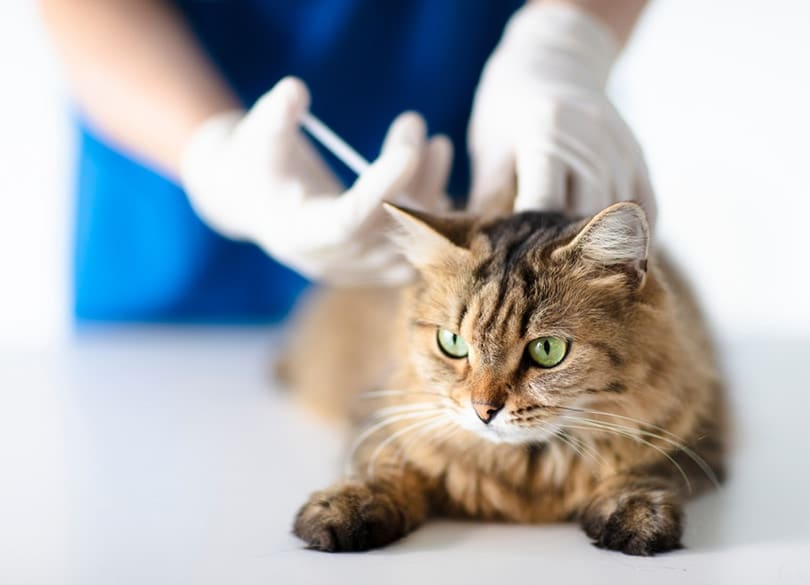
What Causes Rabies in Cats?
Rabies in cats is caused when a cat is bitten by an infected animal, such as a raccoon, skunk, or bat. Some carriers of rabies are more common in certain areas of the world. After the bite, the virus travels slowly via the nerves until it infects the nervous system and ultimately causes death. Unfortunately, once infected with rabies, there is no treatment for cats.
Where Are the Signs of Rabies in Cats?
- Drooling
- Biting
- Water phobia
- Seizures
- Lack of appetite
- Lethargy
- Hiding or other behavioral changes
- Weight loss
Because the rabies virus is deadly and transmissible to humans, it is imperative that you contact your vet immediately if you have any concerns about your cat being exposed to or showing signs of rabies.
If you need to speak with a vet but can't get to one, head over to PangoVet. It's an online service where you can talk to a vet online and get the advice you need for your pet — all at an affordable price!
Traveling with a Cat: How Does the Rabies Vaccine Fit in?
Rabies vaccines are mandatory in some countries within a specific period prior to travel or before issuing a health certificate for travel. Ensure that you know the requirements that are specific to your travel destination.

Frequently Asked Questions
What Is a Typical Rabies Virus Vaccine Schedule?
Rabies vaccines are typically given every 1–3 years, depending on the vaccine. Most are licensed for use for cats 12 weeks of age and older.
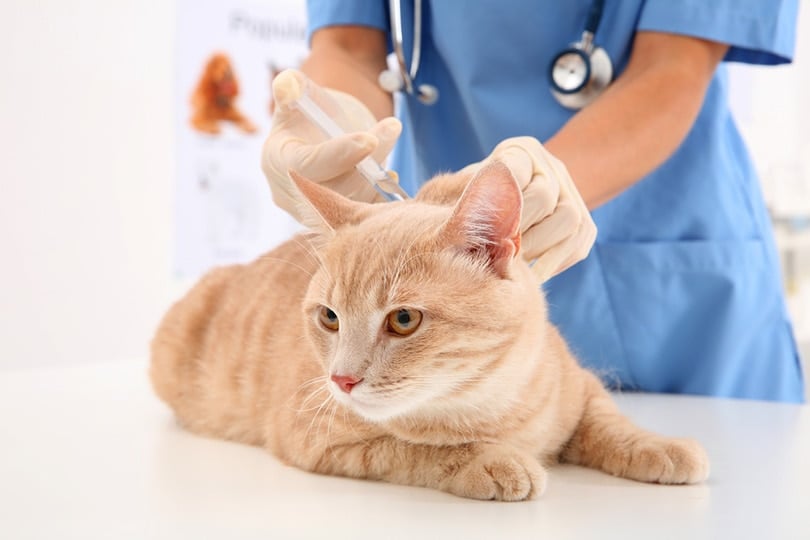
Does My Indoor Cat Need a Rabies Vaccine?
Indoor cats are not exempt from contracting rabies, and many areas require that cats be vaccinated regardless of their indoor or outdoor lifestyles. Therefore, it is a good idea that your cat has at least been vaccinated against rabies at some point in their life.
What Are Possible Rabies Vaccine Side Effects?
Common side effects of vaccines in cats include lethargy, followed by vomiting and/or diarrhea. Cats rarely develop anaphylaxis (life-threatening allergic reactions to vaccines), facial swelling, or hives, as many other species are prone to developing. Let your vet know if your cat experiences any reactions to a vaccine, as this may change how they should be vaccinated moving forward.
However, vaccines can also have rare but serious side effects. One of the more serious side effects, particularly in cats, is called vaccine-associated fibrosarcoma, which is a type of cancer that forms from the cells forming the connective tissue layer under the skin. There is strong evidence to suggest that a combination of genetics, along with certain vaccines, has led to the formation of these cancers in cats.
Many of the vaccines are now made differently so as not to contain adjuvants. Additionally, most vaccines in cats are now given in specific locations of the body. That way, if one of these cancers occurs, the vaccine that may have played a role can be identified.

Conclusion
Rabies is a serious, fatal disease in cats and humans. Therefore, vaccines are not to be taken lightly. Any healthy cat at risk of being exposed to the disease should receive appropriate rabies vaccines, as determined by their veterinarian.
See Also:
- Feline Leukemia (FeLV) Vaccines for Cats: A Complete Guide (Vet Answer)
- Distemper Vaccine for Cats: A Complete Guide (Vet Answer)
Featured Image Credit: Kachalkina Veronika, Shutterstock
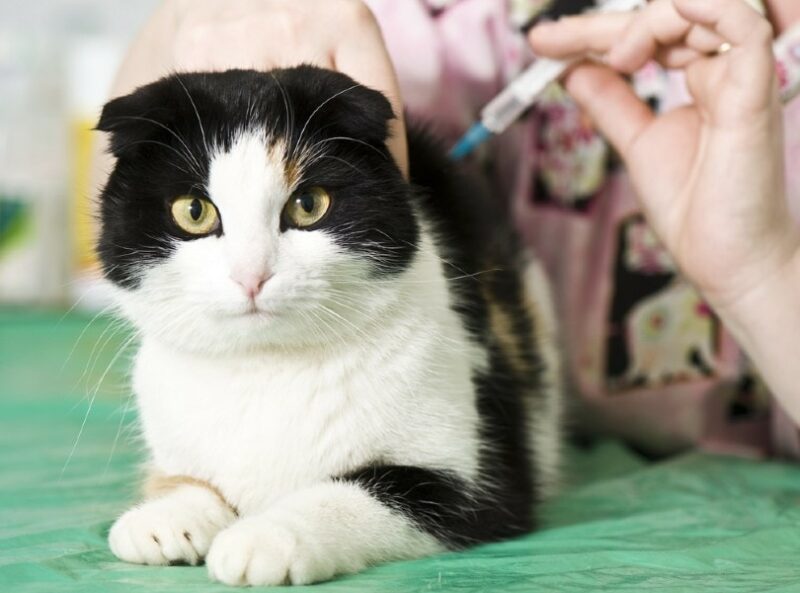


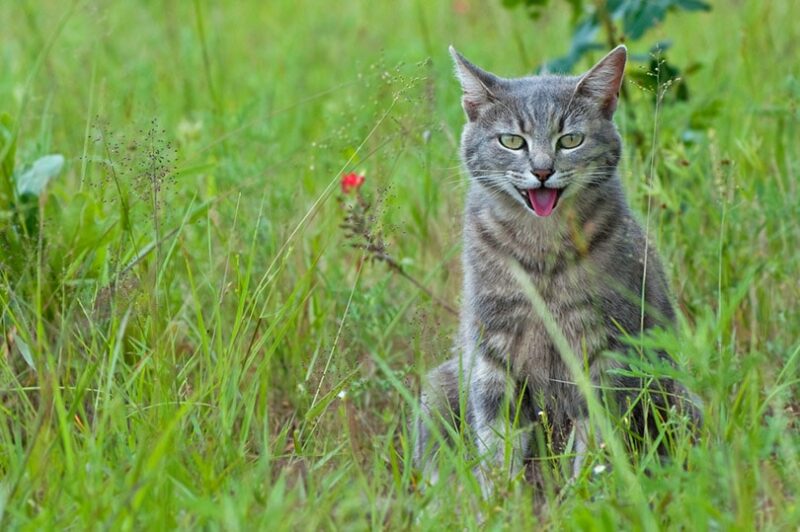
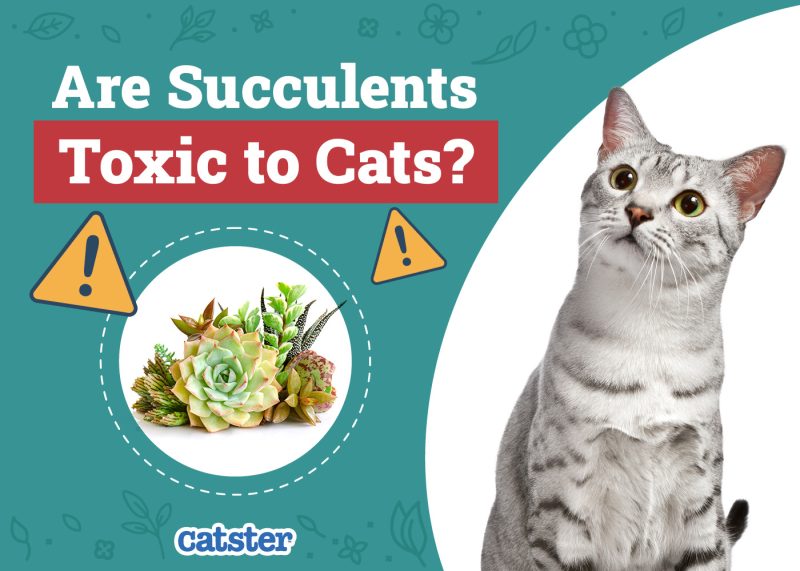
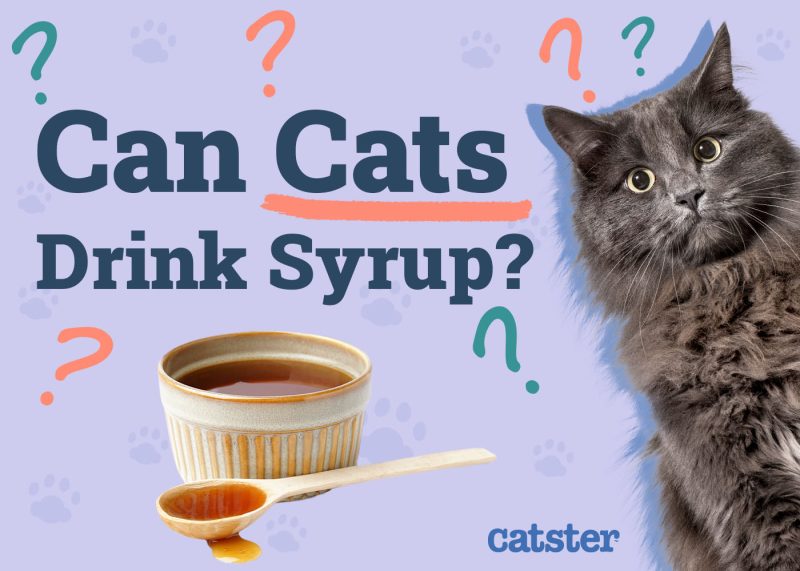

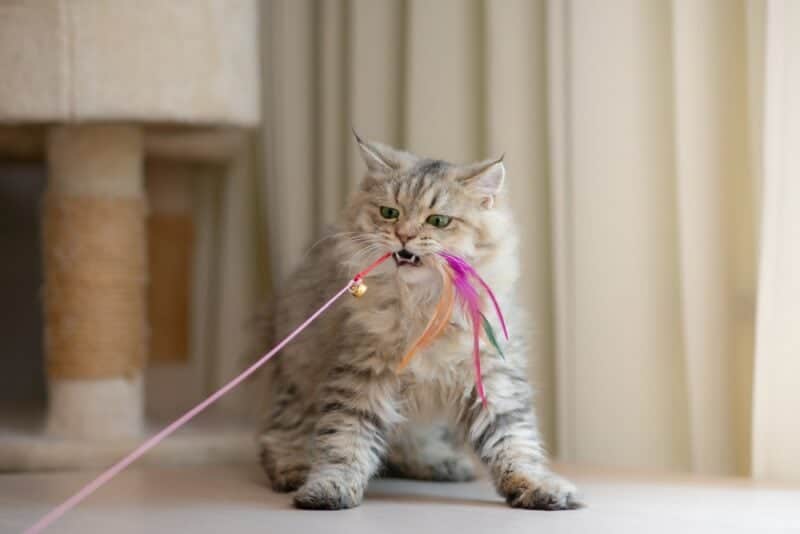

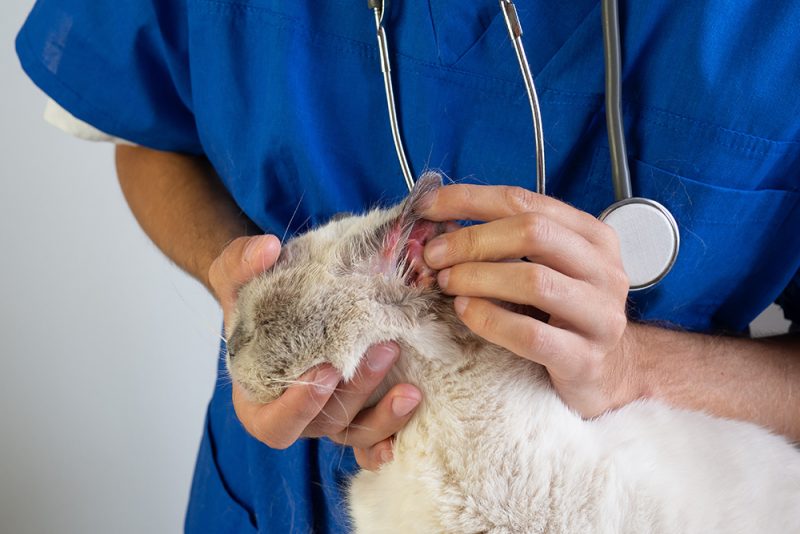
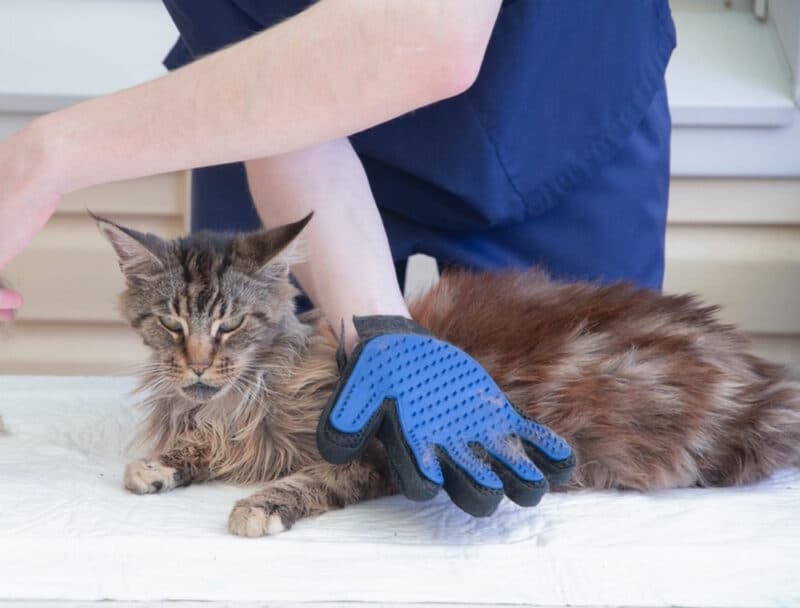

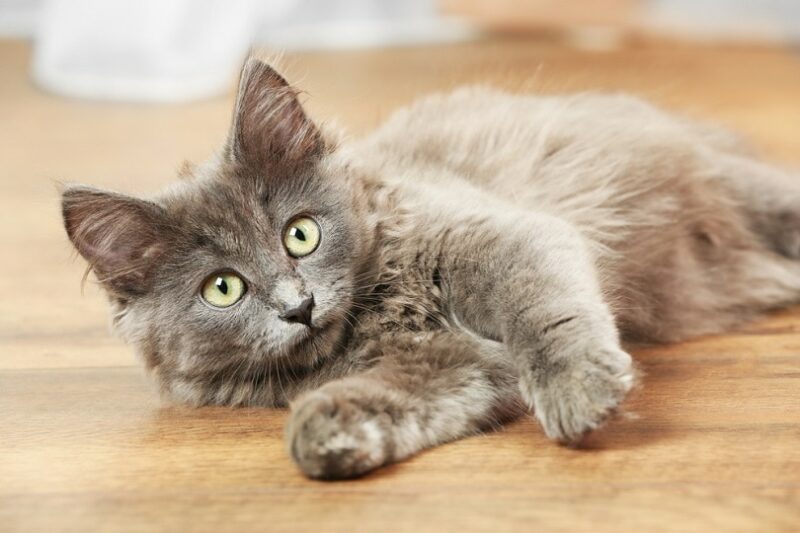
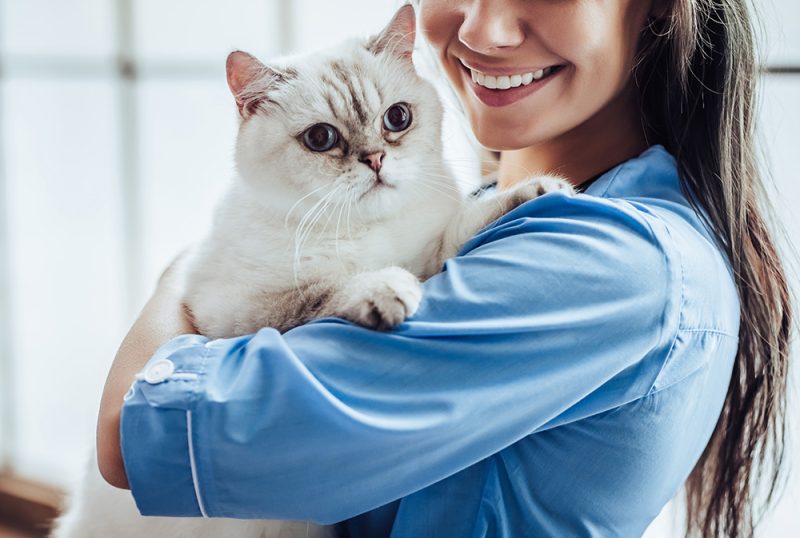







6 Responses
my vet in ontario only gives the rabis shots for 1 year. I want the 3 year vacine.
I do not want to take my cat in every year for a rabies shot. i feel it is a money making thing. also have to pay for the appointment for the check up. vets are being taken over by VCR .. a money making company.
where can i get a 3 year vacine for the cat
Hi Renee Goldstein, sorry to hear about your story, we recommend you look for a second opinion from a different vet in your area, your cat’s lifestyle and risk assessment need to be considered to decide which vaccine is best for them.
i had a stray tom cat neutered. he received a rabies shot. 6 days later he bit me twice – now enflamed.
HOW LONG DOES IT TAKE A RABIES VACCINE TO BE EFFECTIVE.
DO I NEED TO HAVE THIS CAT QUARENTINED AND HOW LONG
Hello Martha,
thank you for your message and sorry for a bit of a late reply. To answer your question – the cat is considered fully immunized after 28 days after the initial vaccination. Through that period, you should look out for your cat and don't let them roam freely outside.
Please get your MD to see your bites and make him aware of the situation.
Why I’m I being forced by vets to give indoor cats rabies vaccines, if on Long Island we have only one case of rabies since 2016? The rabies vaccine has major side effects including cancer down the road. Raccoon’s are not coming in my house to bite my cats. Is this just a money making scam by vets, I’ve done the research, I’m not seeing why the push to go crazy with vaccines that can and have shortened my cats lives.
Dear Donna,
Thank you for reaching out. This is a question more pet owners may be asking themselves. Indoor cats are not exempt from getting rabies, though it is less likely. Rabies is a public health problem and thanks to the coordinated efforts of health experts, fewer than 10 human deaths are reported each year in the U.S., down from several hundred before 1960. Rabies is a zoonotic and deadly disease. This means that it is transmitted from animals to humans and that death is inevitable once the symptoms of the disease develop. If medical help is sought immediately after contact with a suspected rabid animal, before the disease develops, there are medical options, called post-exposure prophylaxis (PEP). Here you can read the latest report about Rabies in the U.S., for further information.
Rabies is such a serious disease that it is the only cat vaccine for which legislation exists and New York state is among the 6 states that account for more than 50% of animal rabies cases in the latest U.S. surveillance.
If you have any more concerns we have an online veterinary service where you can book a consult and have a video call with one of our experienced vets. Simply go to https://pangovet.com/schedule-appointment/ to book today. Hope that helps!